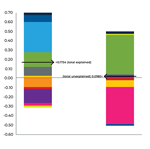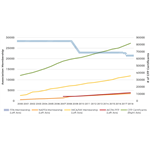One of the most important aspects of the development of financial planning as a profession is the setting of standards, both for the practice of financial planning and for those who can call themselves a Certified Financial Planner (CFP) professional. But while CFP Board has created a universal set of practice standards, the experience requirement for CFP certification can be fulfilled in a variety of ways and does not require experience working directly with clients.
The range of accepted options available to fulfill the experience requirement leads to newly minted CFP professionals with varying skill levels to handle the client issues they will face as a financial planner. Which means that clients may not get a consistent level of quality and service from financial advisors, even though they may be CFP practitioners. However, by replacing the current options of broadly defined experience requirements with a comprehensive universal training program for all aspiring CFP certificants, the profession could potentially elevate what it means to have CFP certification, in addition to ensuring that clients of CFP professionals can be confident that they will receive consistent, high-quality financial planning consumer experiences.
Such a comprehensive universal training program could be modeled on the accredited experience requirements that prospective doctors must complete to achieve certification. Following medical school – which provides a mixture of didactic lectures, interactive training opportunities, and heavily supervised patient experiences – graduates generally engage in a 1-year internship and a 2- to 6-year residency program where they are given increasingly more responsibility under the supervision of higher-level residents and attending physicians. This model of accreditation emphasizes the resident reaching significant experience ‘milestones’ instead of just the amount of ‘time served’. The resident’s progress is tracked by monitoring education and achievements using real-time data.
A financial planning residency program that replicates this format, where an expansive body of knowledge is reinforced through relatively standardized educational experiences, would help to create a consistent curriculum providing CFP professionals with the right breadth and depth of training to prepare them for a wide range of client encounters. Over the course of 3 years, aspiring CFP professionals (who have already completed the education requirements for CFP certification) can gain the experience needed across the range of financial planning practice areas to become a successful CFP professional. At the same time, throughout the 3-year program, residents are immersed in aspects of practice management, including compliance, business planning, and understanding the firm’s financial status. In addition to assuring clients that the CFP professional they are working with has both the education and expertise to serve their needs, such a training program would also give new advisors the confidence that they have been prepared to handle client issues they will face in their work as a planner.
Ultimately, the key point is that by using the medical field as a guide to create standardized and valuable residency programs for financial advisors, the financial planning profession can develop an educational structure that will not only raise the image of the profession among consumers, but also provide new financial planners with the real-life experience they need to build confidence and serve clients on their own!









